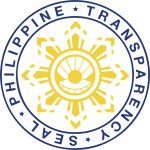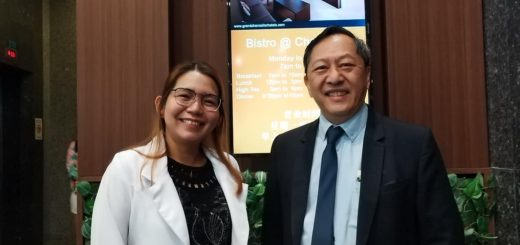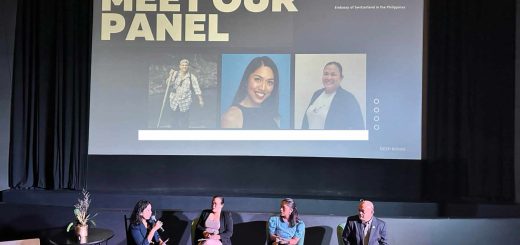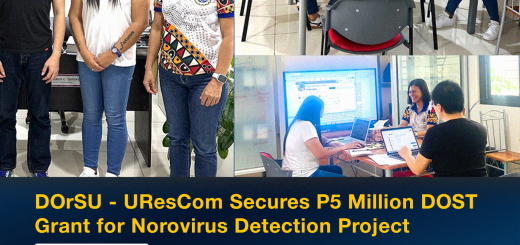IBC 2024 Highlights Regenerative Technology for Ecosystem Restoration
by DOrSU-PIO · Published · Updated
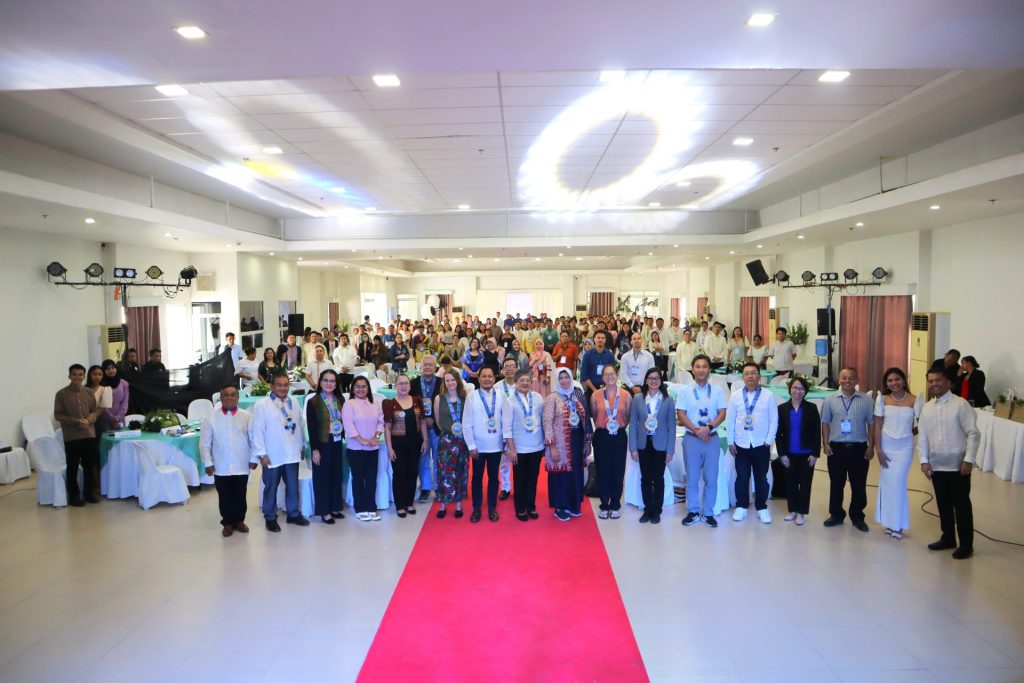
The International Biodiversity Conference (IBC) 2024 hosted by Davao Oriental State University (DOrSU) was successfully held from October 24 to 26 in the City of Mati, Davao Oriental. This year’s conference marked its third installment since its launch in 2019 and attracted a diverse assembly of scientists, academics, community leaders, environmental advocates and students from across the globe.
With the theme “Sustainable Management in Agriculture, Regenerative Technology, and Ecosystem Restoration (SMARTER),” the 3rd IBC featured plenary sessions, paper and policy brief presentations, and extensive networking opportunities.
During the opening ceremony, Dr. Misael B. Clapano, DOrSU’s Vice President for Research, Innovation, and Extension, underscored how the conference opens doors for collaboration . “The IBC is a gathering of shared purpose,” he said, emphasizing that collective efforts drive effective solutions for biodiversity challenges.
Mati City Mayor Michelle N. Rabat, represented by City Administrator Allan E. Andrada, spoke of Mati’s natural treasures, from Mt. Hamiguitan Range Wildlife Sanctuary to its renowned Pujada, Mayo, and Balete Bays. Andrada also shared Mati’s new “Highlands to Ocean” (H2O) initiative, underscoring how the SMARTER approach aligns with the city’s commitment to environmental stewardship: “This approach speaks to innovation and responsibility—ensuring that today’s actions contribute to a sustainable planet for future generations.”
Moreover, Provincial Governor Niño Sotero L. Uy, represented by his Chief of Staff Everendo Esver, highlighted the conference’s role in uniting global voices for the shared mission of safeguarding biodiversity. “This gathering allows us to learn from each other and create partnerships that foster resilience and sustainability,” Esver said.
In his message, DOrSU President Dr. Roy G. Ponce shared how the IBC has shaped the university’s vision of regenerative futures, grounded in the philosophy that human well-being, economic stability, and natural ecosystems can thrive in harmony. “Our commitment is not just to sustain but to strengthen the balance between humanity and nature,” he remarked.
A highlight of the opening ceremony was the keynote address by Hanna Kuhfuss, Co-founder and Head of Field Operations at rrreefs, a Zürich-based organization. Kuhfuss presented the successful deployment of a 3D-Printed Eco-Engineered Reef System in Pujada Bay. This groundbreaking project utilizes typhoon-resistant, clay reef structures, designed to revitalize coral habitats and support mangrove rehabilitation. With plans to establish a production facility in Mati, this initiative stands as a model of sustainable marine conservation.
Following the opening ceremony, plenary sessions covered various facets of conservation and sustainability. On the first day, For. Formida P. Andres from DENR-BMB presented on the Philippines’ updated biodiversity commitments, and For. Norma Malinyawe of the USAID-INSPIRE Project discussed the importance of partnerships for ecosystem restoration. International perspectives included Dr. Hasnah Darunan from Universitas Andalas in Indonesia, who explored the socio-economic benefits of sustainable agriculture.
The second day’s sessions featured Dr. Tan Yen Yi of the National Museum of Singapore who talked on integrating avian research into regenerative practices, followed by Dr. Jayson C. Ibañez from the Philippine Eagle Foundation, who shared insights from the Philippine Eagle Conservation Program. The plenary session also included presentations by Dr. Gina P. Nilo from DA-BSWM on soil and water resource management and Mr. Elden Karl L. Requilme from DA-PRDP on sustainable agriculture initiatives.
The afternoon plenary series continued with Dr. Aileen H. Orbecido from De La Salle University, who discussed “The Bio+Mine Project”, a multidisciplinary approach to rehabilitating mines, and Dr. Han Soo Lee from Hiroshima University, who presented the state-of-the-art CHESS Lab, an advanced coastal conservation technology. The day concluded with Atty. Vicente Paolo B. Yu from the United Nations, emphasizing biodiversity’s role in sustainable agriculture and development.
In addition to the insightful plenary talks, the conference showcased 88 research papers presented across four thematic clusters: Sustainable Management in Agriculture; Regenerative Technology; Ecosystem Restoration and Biodiversity; and Gender, Policy, and Governance in Sustainable Agriculture and Ecosystem Restoration. Participants included international delegates from Switzerland, Japan, Cuba, Jamaica, Syria, South Korea, Singapore, and Indonesia, alongside representatives from various Philippine academic and research institutions.
To immerse participants in the local culture, a Cultural Night was held, celebrating the heritage of Davao Oriental’s Mandaya and Kagan tribes. The conference also included a tour of Mati City’s iconic attractions, allowing delegates to experience the city’s natural beauty firsthand.
As the 3rd IBC concluded, it reaffirmed its position as a pivotal platform for sharing knowledge, fostering collaboration, and inspiring action. By highlighting innovative solutions through regenerative technology, the conference has ignited a global movement towards ecosystem restoration. The event further underscored DOrSU’s commitment to its regenerative futures vision, demonstrating the university’s dedication to balancing socio-economic development with environmental stewardship. (DOrSU PIO)

